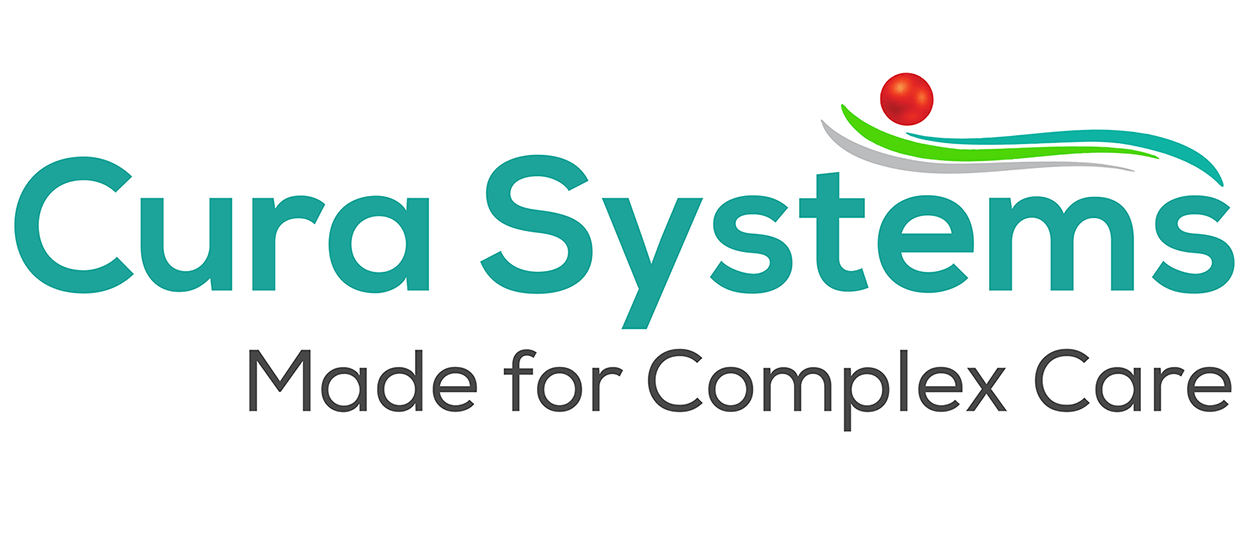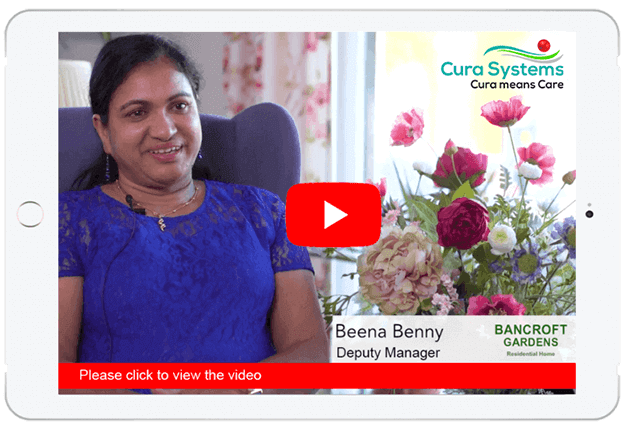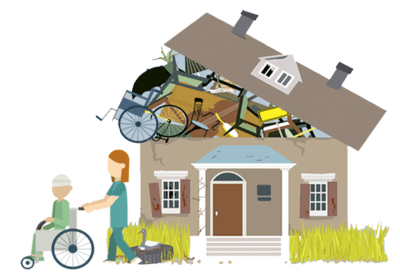Too much time is wasted checking care plans, handing over from one carer to the next, and updating resident records. Even computer-based systems take people away from their residents to input information into back office systems. Cura aims to change all that with an electronic records system that delivers all its power at the point of care on a handheld tablet-based device.
Revolutionising Care Management with Cura Electronic Records System
Cura Systems is introducing a suite of applications that gives care home teams complete access to digital care planning and monitoring on a tablet computer.
The company aims to put power back in the hands of carers, freeing them up to support their residents rather than constantly forcing them to fill in paperwork and ensure that every action is recorded and compliant with modern regulations.
“Caring for the elderly and incapacitated has never been easy and now even more challenging with increasing compliance requirements and paperwork taking their toll on scarce resources that should be spent in providing care,” the company says. “With Cura, you can simply get all information relevant to the care of the individual in the hands of the carer and where it matters most: at the point of care delivery,” it adds.
In a demonstration of Cura to Care Home Professional, the company’s director and founder Abu Omar (pictured above) showed the vast array of applications that carers can use at the tap or swipe of a tablet screen. Modules include electronic care plans, daily event reports, laundry planning, meal plans, medication tracking and body mapping so that a resident’s injuries and vital signs can be monitored.
“The tablet computer carries all of the power and control of the care planning system, with the back end servers subservient to the front end,” Mr Omar explained. “The power is in the pocket of the caregiver,” he stresses.
Development of Cura System
Development of Cura – the Latin translation for ‘care’ – began eight years ago in Singapore, and is widely used by the care industry in the Asian city state. It was first introduced to UK care operators at the Care and Dementia Show in Birmingham last year following extensive work to ensure that the system is compliant with all UK regulatory authorities and has details of British medicines and medical terms.
All aspects of clinical and personal care can be monitored from Cura. In the demonstration, we were shown a typical snapshot of a carer’s day with resident interactions recorded including sleeping and waking, going to the bathroom, administering medication, booking an appointment at the hairdresser and registering that clean linen had been delivered.
With many of the interactions, there are detailed checks such as the mood of the resident during the activity, how much food or drink has been consumed, and what the person’s vital signs are following an activity. This information builds into a highly detailed picture of the care each resident is receiving, and the affect it is having on him or her over the time they live in a home.
The tablet screen is divided in two. On the left are all the application modules that relate to the resident’s care. On the right are apps that provide important information for the carer such as the schedule of what is happening in the home on any day, the food and drink menu, and details of consumables that need to be ordered.
There is also an extensive library of advice where carers can search for information, and also ask questions. “They just ask Cura, how do I book transport? for example,” Mr Omar explains.
Transport can even be integrated into the app. Cura demonstrated how a local taxi firm could be connected so that they could be summoned from the carer’s tablet.
Helping the elderly with their medication is one of the main challenges care service providers face, and the handover of care from one carer to another increases the difficulty and risk of mistakes being made.
Mr Abu showed how Cura minimises the risk of errors in medication or other healthcare interventions, with alerts for medication, a full medical history of conditions and vital signs of each resident, body maps and notes.
“Every intervention is logged, so there is considerably less chance of errors, even if several carers are involved with a resident over days or weeks,” Mr Omar explains.
If there are any issues that cannot be addressed by the carer, Cura includes a chat system that allows care providers to communicate in real time with key contacts such as doctors, pharmacists and others. “With Cura, care givers have relevant information available at the point-of-care-delivery,” says Mr Omar.
Cura's Care Ecosystem
The aim of Cura is to create an ecosystem of care around each resident, so that they benefit from contact with carers, GPs, pharmacists and their family members. The mobile care monitoring includes an app called Cura Kin, which relays information about the resident to relatives. “Cura Kin is a mobile care monitoring app and a wonderful way for the next-of-kin to stay in touch with their elderly relative in a care home. Push technology relays certain information about the resident to their relative and enables the user to stay in touch with the care home and care givers,” Mr Omar explains.
The depth and breadth of the services delivered on a handheld tablet may lead operators to fear the complexity and cost of moving to Cura, but Mr Omar says he encourages customers to start small and simple and build from there.
Rather than deploy every application in the Cura suite across multiple care homes at the same time, the company suggests people begin with a small number of apps in a single care home. “We always recommend baby steps,” says Mr Omar. “Identify one pain point and address it using the care planning system. That might mean only one or two modules to begin with. People quickly gain confidence and grow from there,” he adds.
The cost of getting started is also attractive, with the care home software priced at under £3 per resident in a home that deploys it. Cura offers training for all staff on the system for around £300, and administrators are guided through a step-by-step migration process.
By Rob Corder, Care Home Professional Magazine – July 2016




